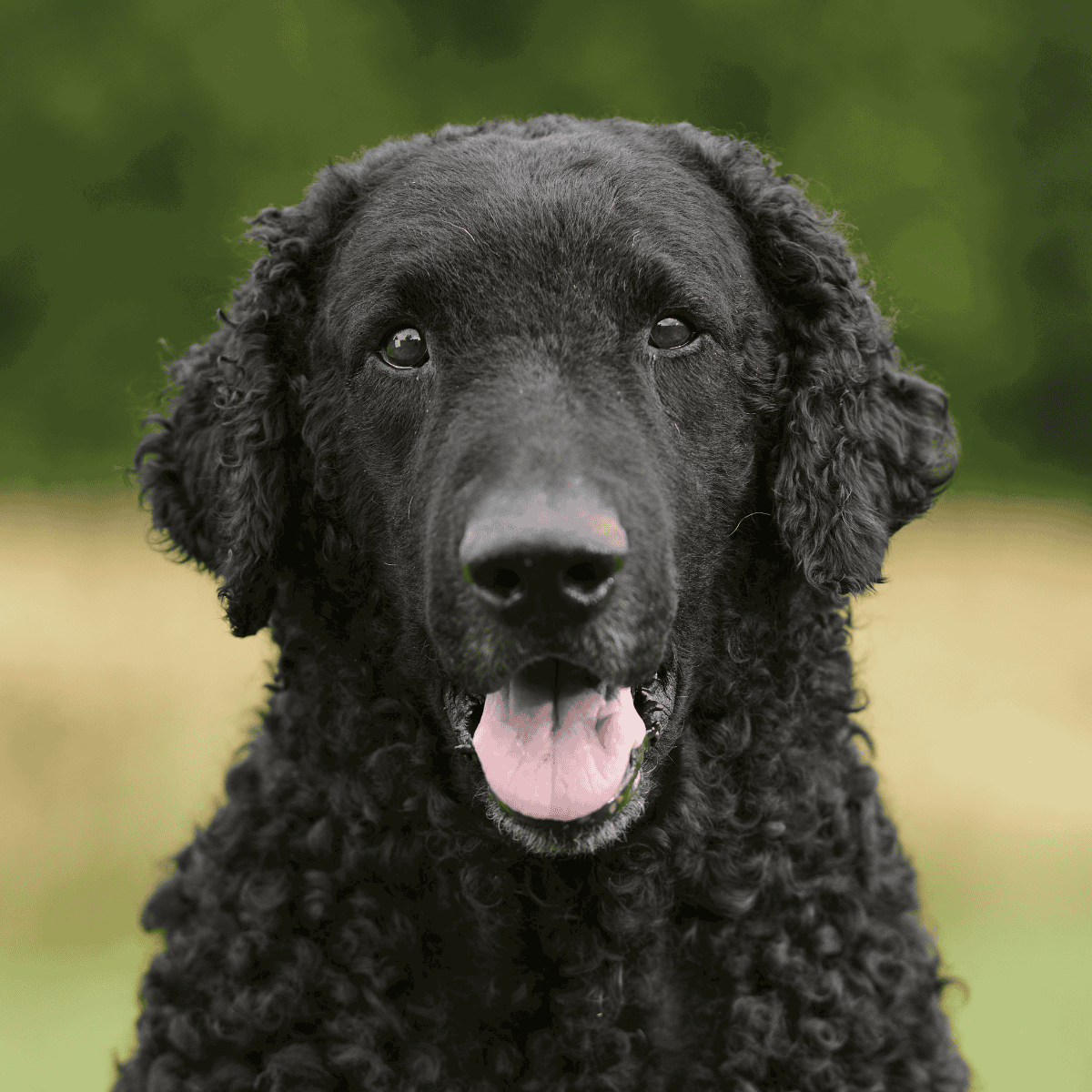
Curly-Coated Retriever
Shortcuts
The Curly-Coated Retriever is a durable and versatile gundog known for its unique coat of tight curls in black or liver. With its waterproof, thorn-resistant coat, this intelligent breed is ideally suited for active, outdoorsy individuals thriving in varied terrains. Recognized for their independent yet affectionate nature, Curlies have a distinctive wedge-shaped head and sturdy build. They are playful with family yet reserved around strangers.
High energy and intelligence mean the Curly-Coated Retriever needs plenty of exercise to remain happy and well-behaved. They excel when given jobs, fitting well with active lifestyle enthusiasts. Less clingy than other retrievers, they offer a balanced mix of loyalty and confidence. Curlies are exceptional watchdogs and companions for those who appreciate a spirited and capable dog.
Breed Overview

Height
23 – 27 inches
Weight
60 – 95 pounds
Lifespan
10 – 12 years
Colors
Black, liver
Suitable for
Active families and experienced dog owners who love outdoor activities
Temperament
Confident, intelligent, affectionate, loyal


Height
23 – 27 inches
Weight
60 – 95 pounds
Lifespan
10 – 12 years
Colors
Black, liver
Suitable for
Active families and experienced dog owners who love outdoor activities
Temperament
Confident, intelligent, affectionate, loyal

The Curly-Coated Retriever is an intelligent and versatile breed known for its curly coat. It originated in England and is one of the oldest retriever breeds.
Characteristics
Energy

Health

Sociability

Trainability

Lifespan


Enjoying this read?
We publish this content for free to generate interest in our Premium members' area. By subscribing, you can ask the writer any questions related to pet care and this article, get access to 100+ Premium Pet Care Guides and go Ad-Free with DogFix Premium for $2.99.
Health Conditions
Curly-coated retrievers are generally healthy due to breeders who screen for hip, eye, and heart issues. Common health problems include hip dysplasia, cataracts, cancer, and gastric dilatation volvulus. Less common conditions are epilepsy and craniomandibular osteopathy. Regular veterinary check-ups and a balanced diet are essential for maintaining their health.
Minor Conditions
- Cataracts
- Skin sensitivity
- Ear infections
Serious Conditions
- Hip Dysplasia
- Cancer
- Gastric Dilatation-Volvulus (Bloat)
- Epilepsy
- Craniomandibular Osteopathy
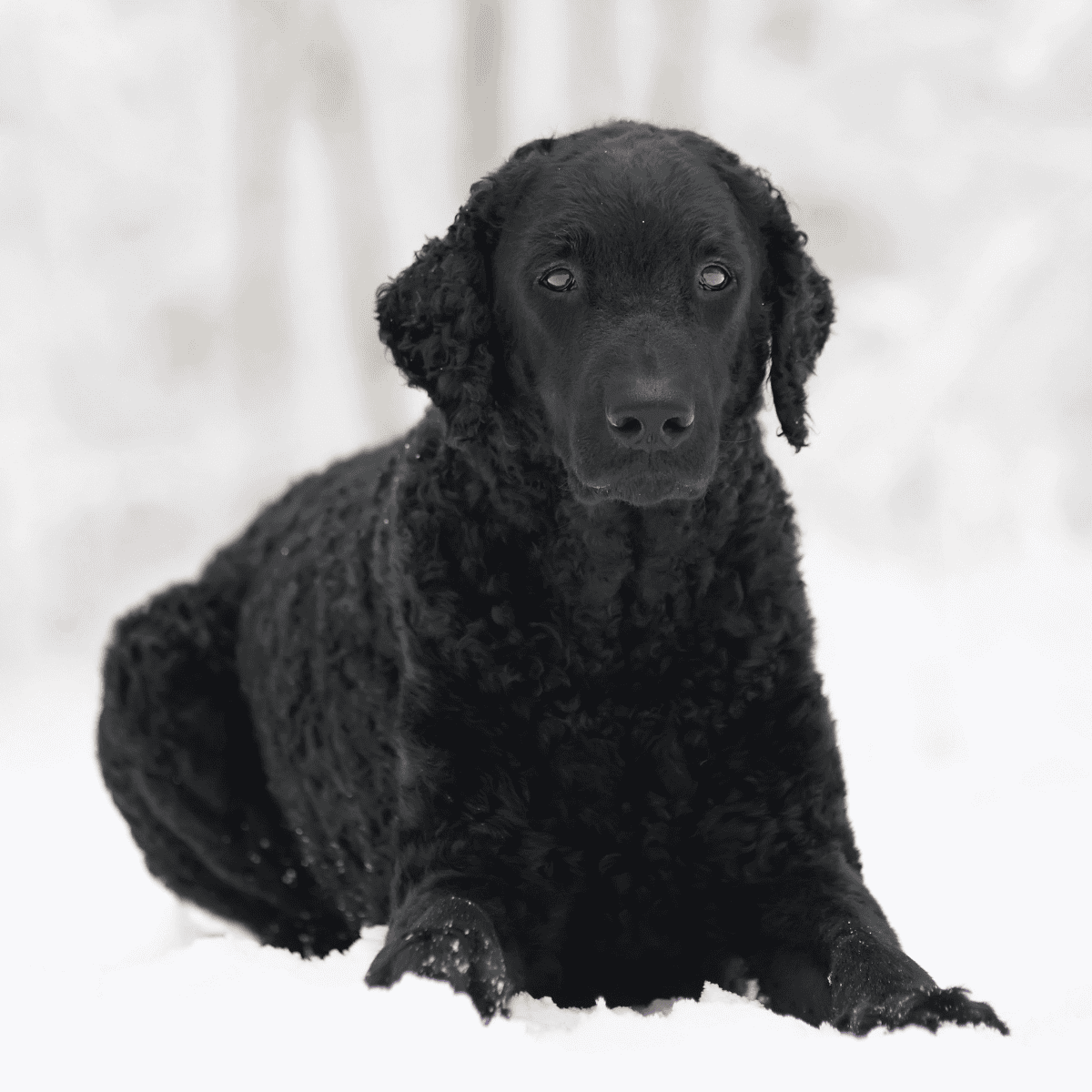
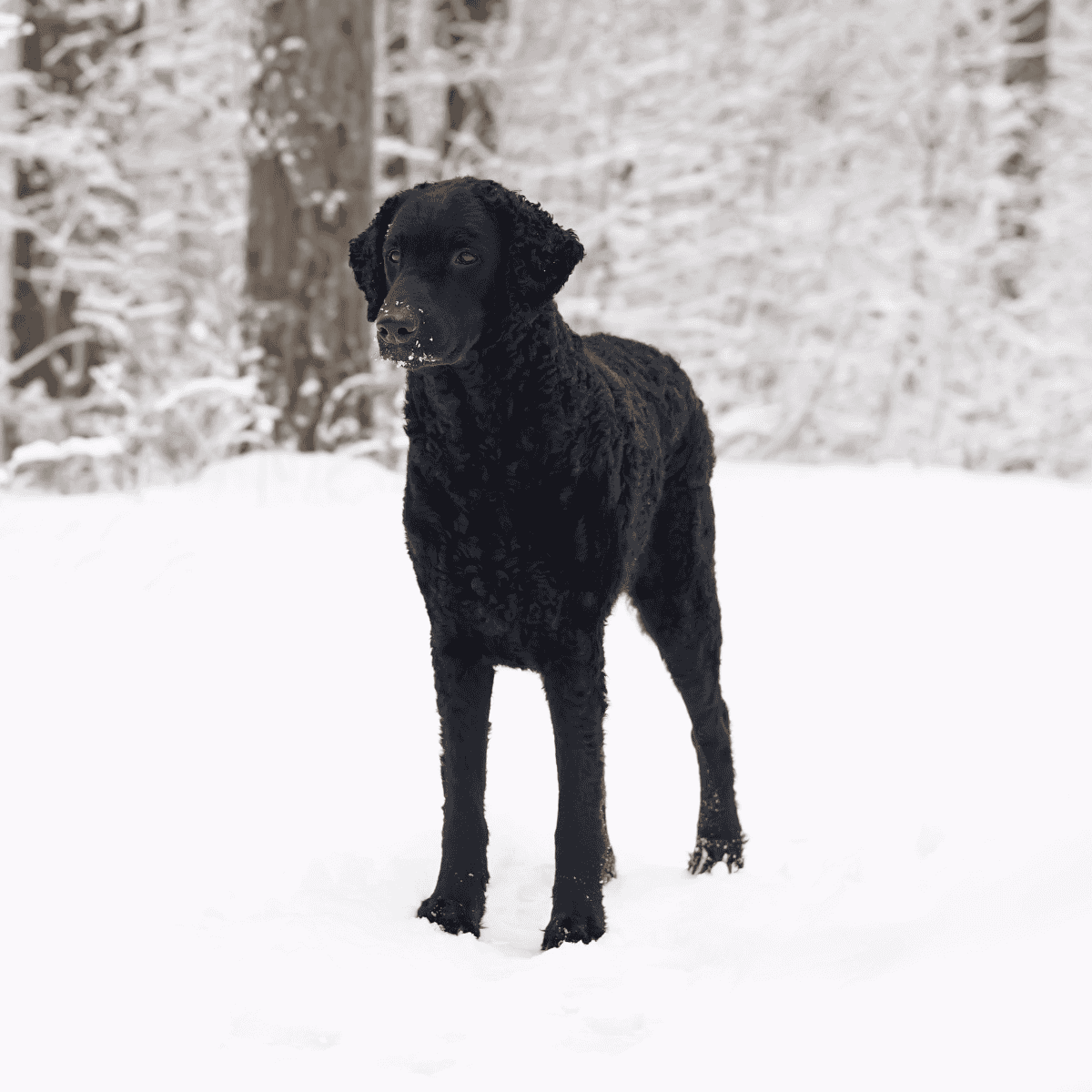
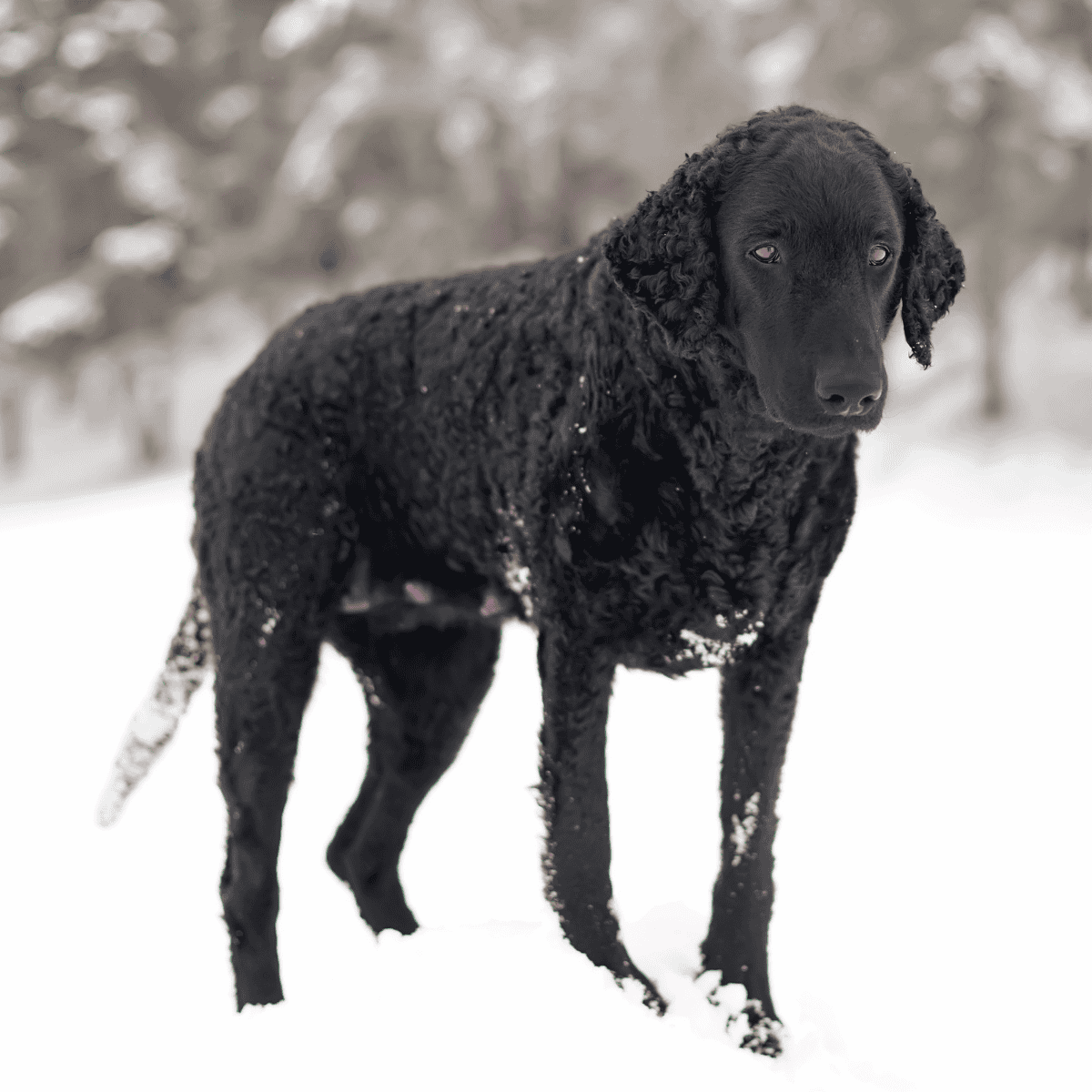
Curly-Coated Retriever Puppies
Curly-coated Retrievers are rare, with only 150 puppies registered annually, so searching for available litters is challenging. Prospective owners often need to explore breeders in distant states like Washington, Florida, and New York, potentially incurring extra shipping costs. Buyers must ensure breeders are reputable and provide health certificates for the puppies.
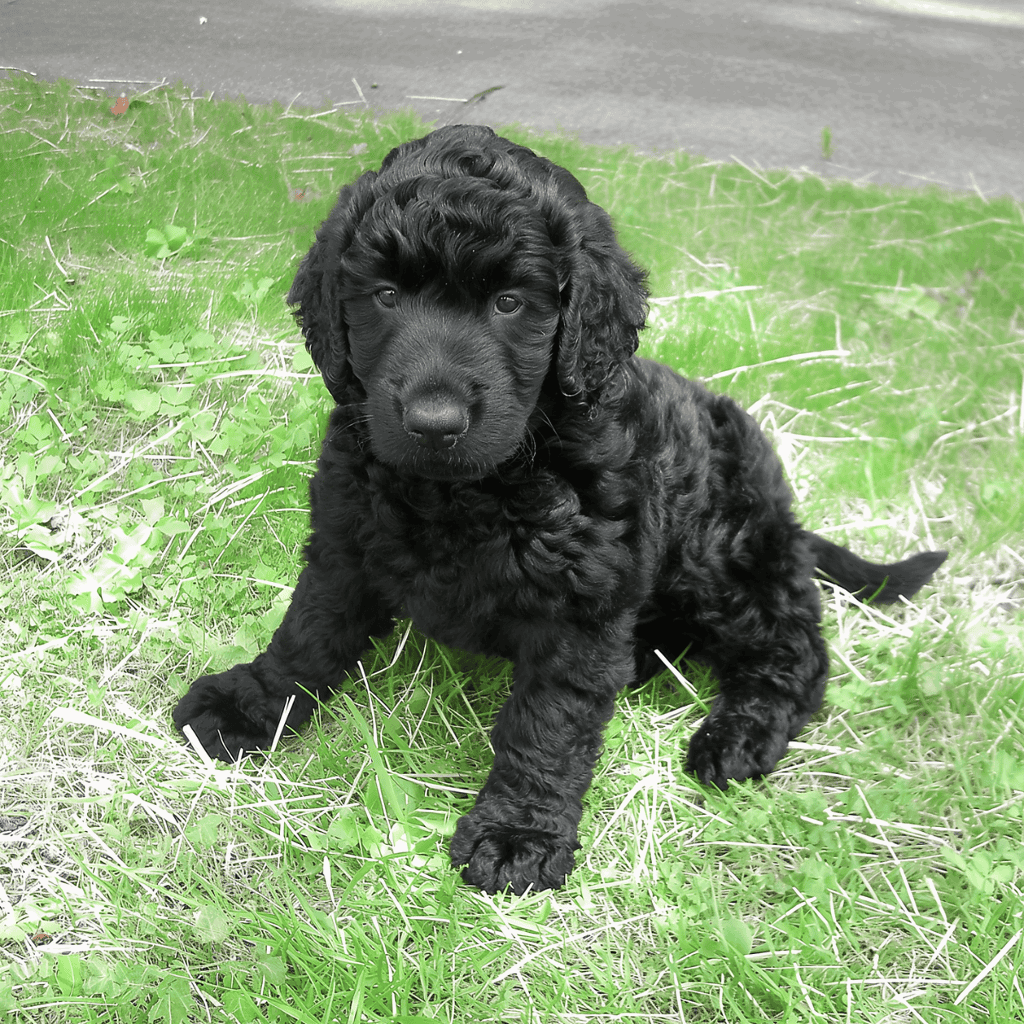
Regular training ensures they stay calm and well-behaved, channeling their energy appropriately. However, their stubbornness calls for a confident and experienced owner. Due to their high intelligence, boredom can lead to undesirable behaviors, making mental and physical stimulation crucial for their well-being.
Temperament & Intelligence Of The Curly-Coated Retriever
Curly-coated retrievers are known for their self-confidence and pride. These intelligent and charming dogs are excellent hunters and adaptable companions. Compared to other retrievers, they are generally less energetic and needy and possess a slightly reserved yet not timid demeanor. Their playful and friendly nature makes them ideal for family settings. Although sometimes distant from strangers, they are affectionate and loyal to their families.
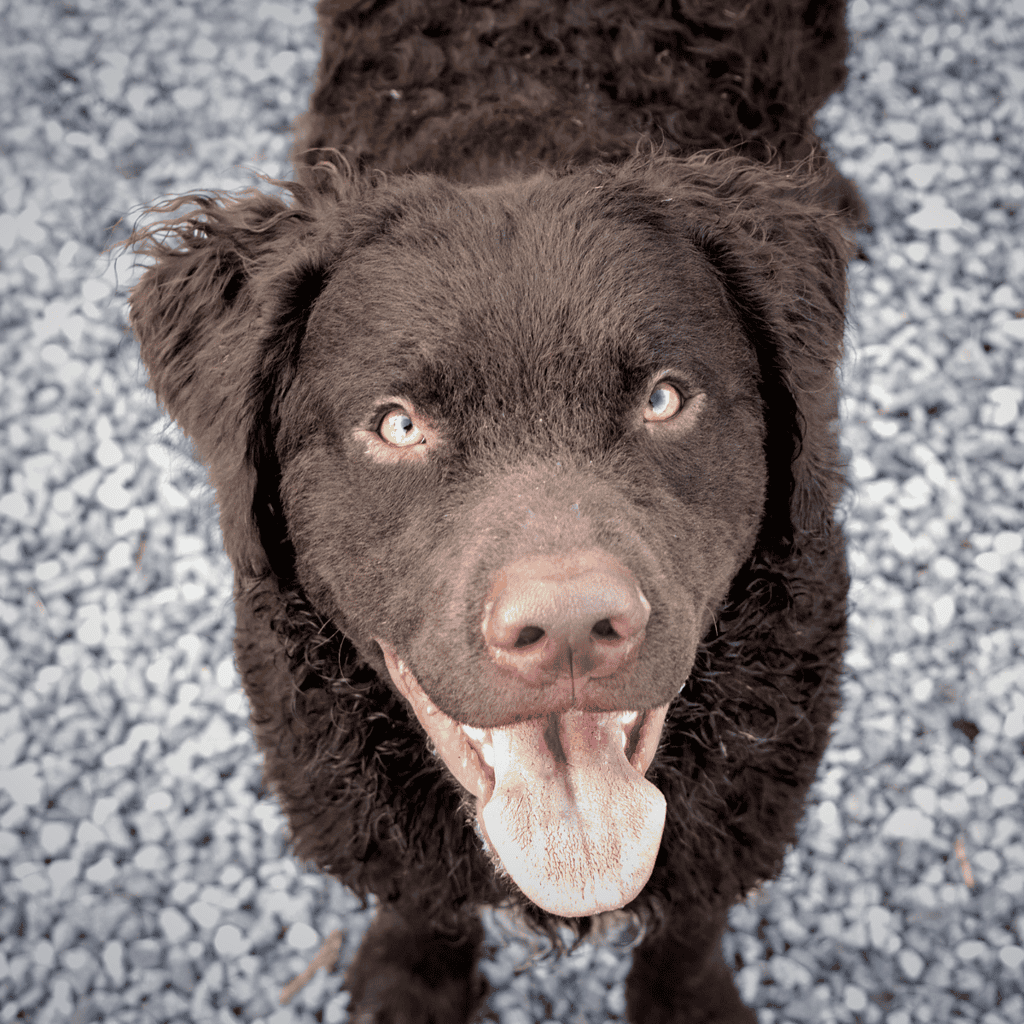
Regular training ensures they stay calm and well-behaved, channeling their energy appropriately. However, their stubbornness calls for a confident and experienced owner. Due to their high intelligence, boredom can lead to undesirable behaviors, making mental and physical stimulation crucial for their well-being.
Are These Dogs Good For Families?
Curly-coated retrievers are excellent for active families, thanks to their confidence and zest for life. These enthusiastic and courageous dogs are great for outdoor adventures, though they might initially be wary of strangers. They often use their mouths a lot, which requires early training to manage, especially around young children.
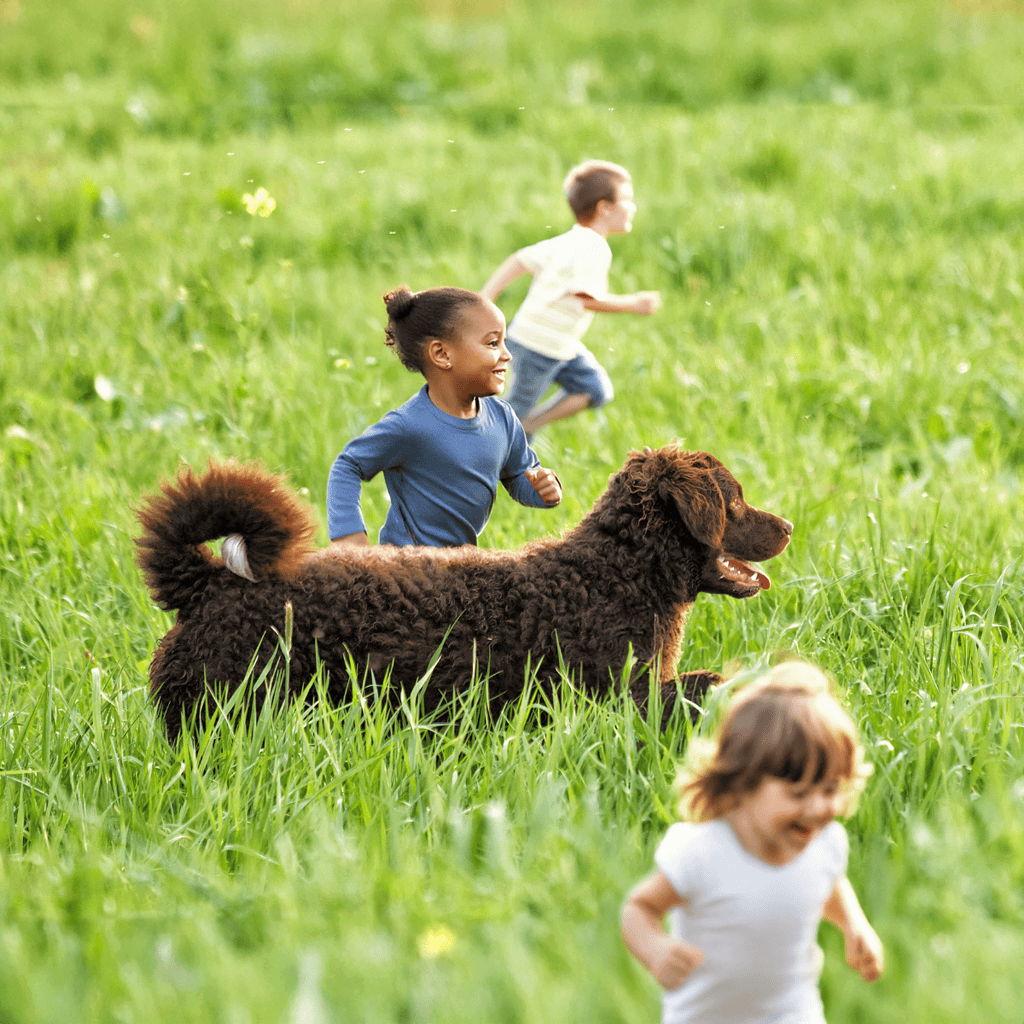
Future owners should note their high energy levels and need for early socialization to curb mouthiness. Curly-coated retrievers thrive in environments that offer plenty of outdoor activities. With the proper training and environment, they become loyal and affectionate family members.
Does This Breed Get Along With Other Pets?
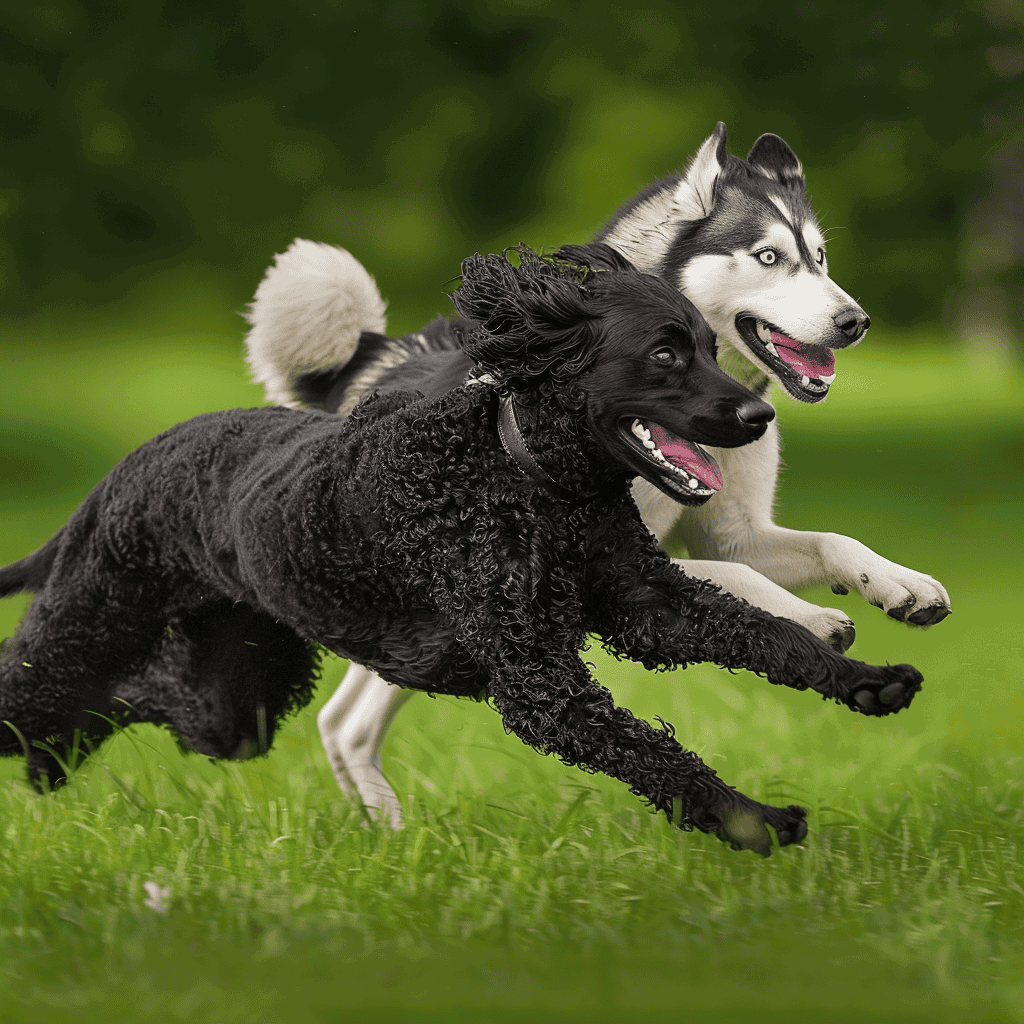
The Curly-Coated Retriever usually gets along well with other household pets. They are generally not aggressive and do well in homes with other dogs. However, they have a natural prey drive and may be inclined to chase smaller animals like cats. With early socialization, they can live peacefully with feline companions. Introducing the Curly-Coated Retriever to smaller pets from a young age can lead to better harmony. Initial supervision may be necessary to ensure positive interactions.
Food & Diet Requirements
Curly-coated retrievers thrive on a high-quality, protein-rich diet, particularly if they’re active in work or hunting. Their daily caloric intake varies by activity level, from 1,200 to 2,200 calories. Feeding them several smaller meals throughout the day can help minimize the risk of bloat, a common issue in larger breeds.
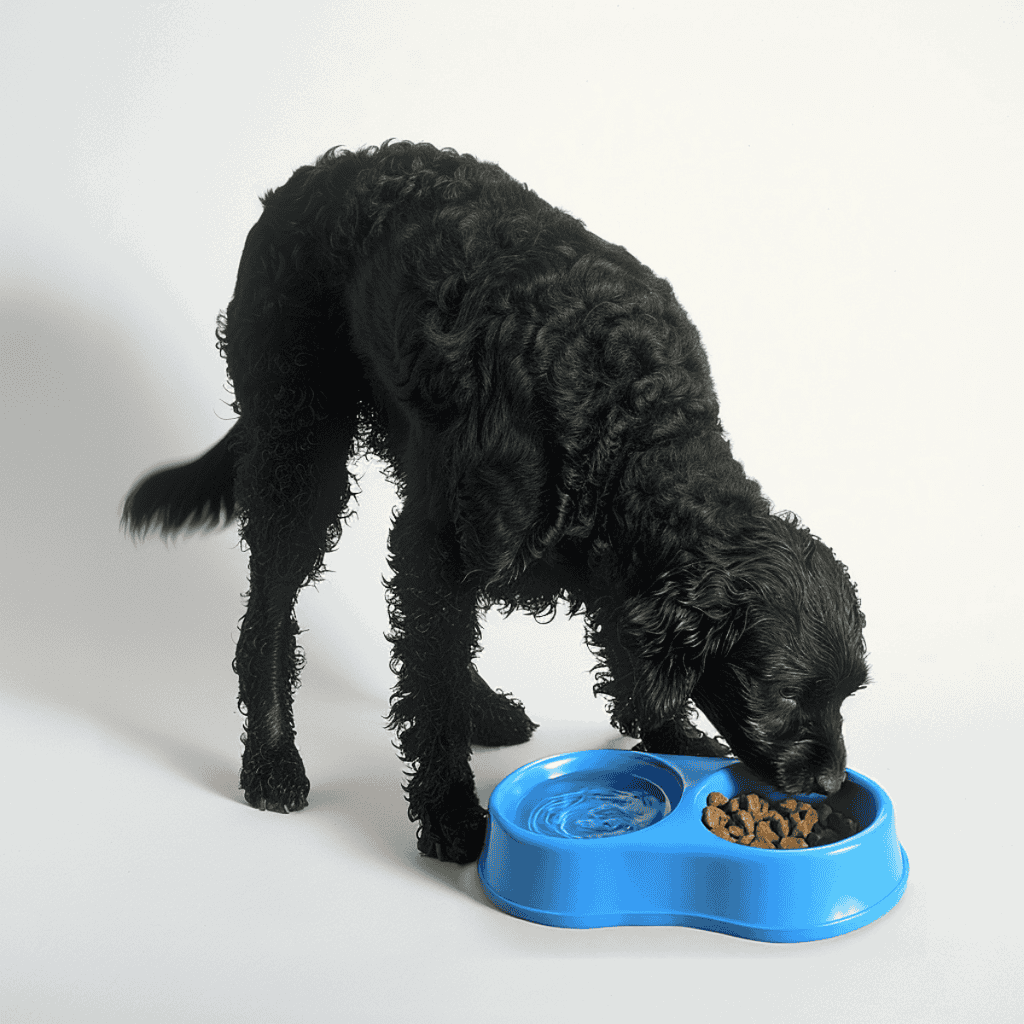
Opt for high-protein dry kibble, suitable wet food, or vet-approved home-cooked meals to meet their dietary needs. Essential nutrients include protein, fats for sustained energy, carbohydrates for digestion, and vitamins and minerals for overall health. Regular vet consultations ensure a balanced diet, and it’s essential to maintain portion control to avoid obesity.
Exercise
Curly-coated retrievers need regular exercise and mental challenges to stay fit and avoid boredom. Daily activities, including an hour of exercise, are essential. Activities like jogging, hiking, and swimming suit them well, thanks to their love for water.
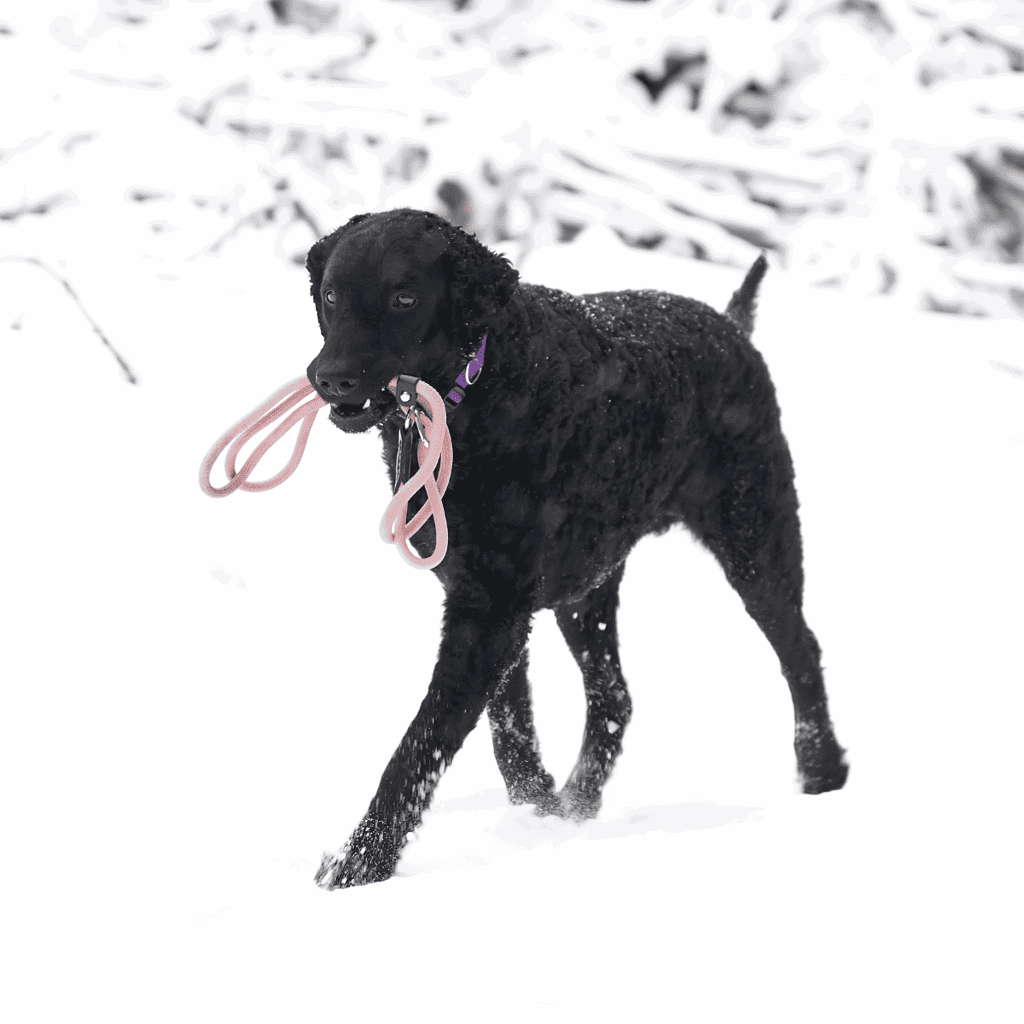
These dogs also excel in dog sports such as agility and flyball, effectively channeling their energy and smarts. Regularly engaging in various activities keeps them content and well-behaved. A large home isn’t crucial if they’re active outdoors.
Training
The Curly-Coated Retriever thrives on varied, engaging training sessions due to its intelligence and eagerness to learn. Starting training early, at around eight weeks, establishes a solid foundation. Effectiveness comes from keeping activities fresh and avoiding repetition, ensuring the dog stays interested and engaged. Regular training sessions are more beneficial than longer ones, helping maintain the dog’s enthusiasm for learning.
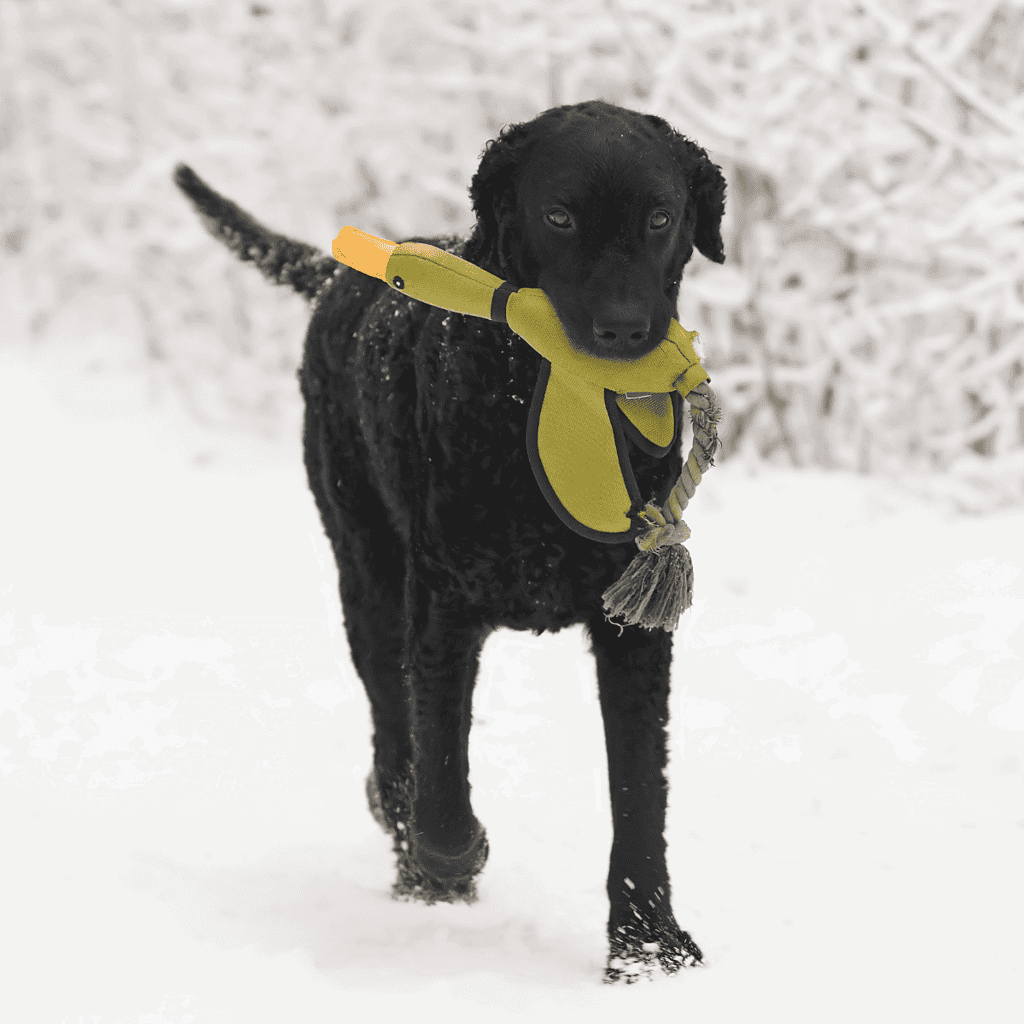
Despite being intelligent, Curlies may learn slower than some breeds, which does not reflect their intelligence but rather a need for dynamic training methods. Positive reinforcement, like treats and praise, is key to motivating them. Early socialization with new environments and beings is crucial for their development. A balanced approach of discipline, affection, patience, and persistence enables these retrievers to excel in their training endeavors.
Grooming
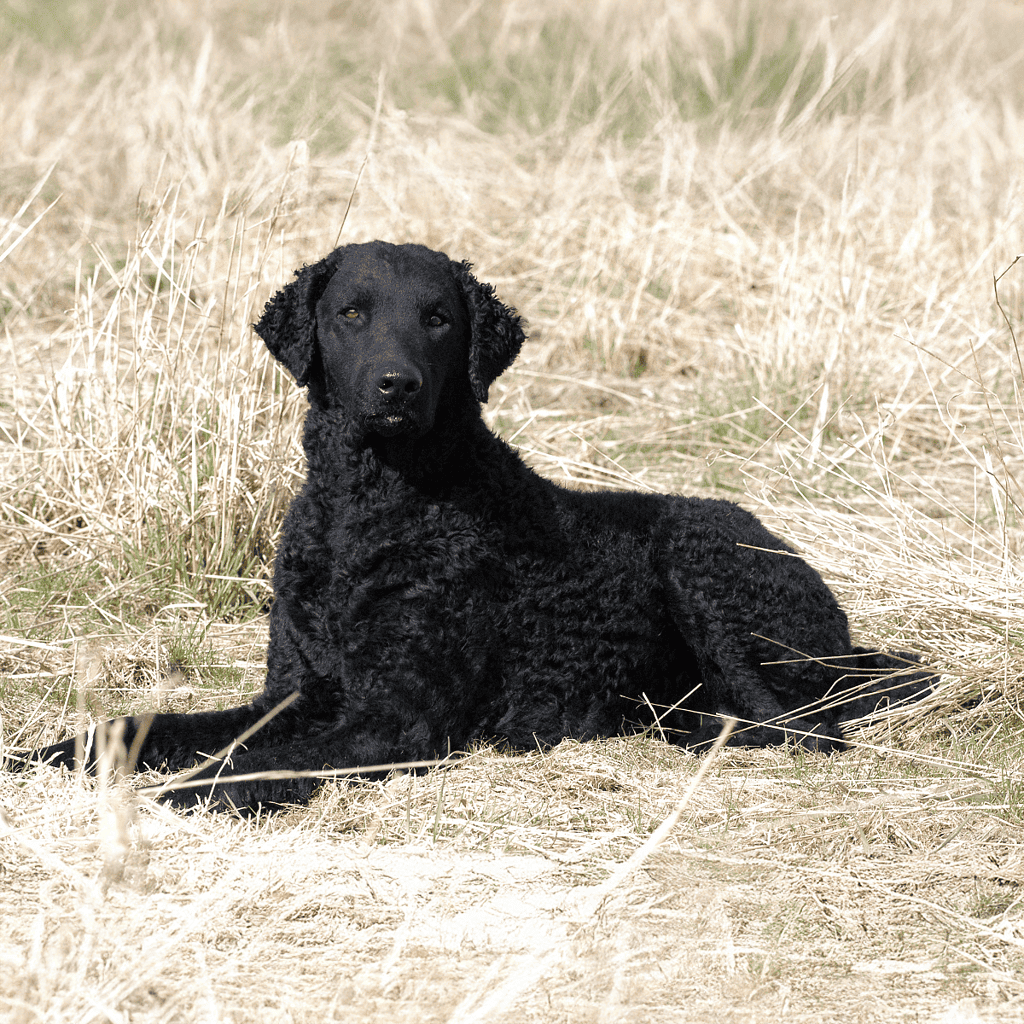
The Curly-Coated Retriever has a unique, tightly curled coat that repels water and debris, offering the breed protection. Despite its appearance, the coat requires minimal maintenance. Owners should refrain from regular brushing to prevent frizz. Instead, bathing with gentle shampoo is recommended only when the dog appears dirty. Shedding is a natural process for Curly-Coated Retrievers, and light brushing can help manage loose hair. Female Retrievers experience significant shedding twice a year, and using a rake-type grooming tool can be beneficial.
Male Vs. Female
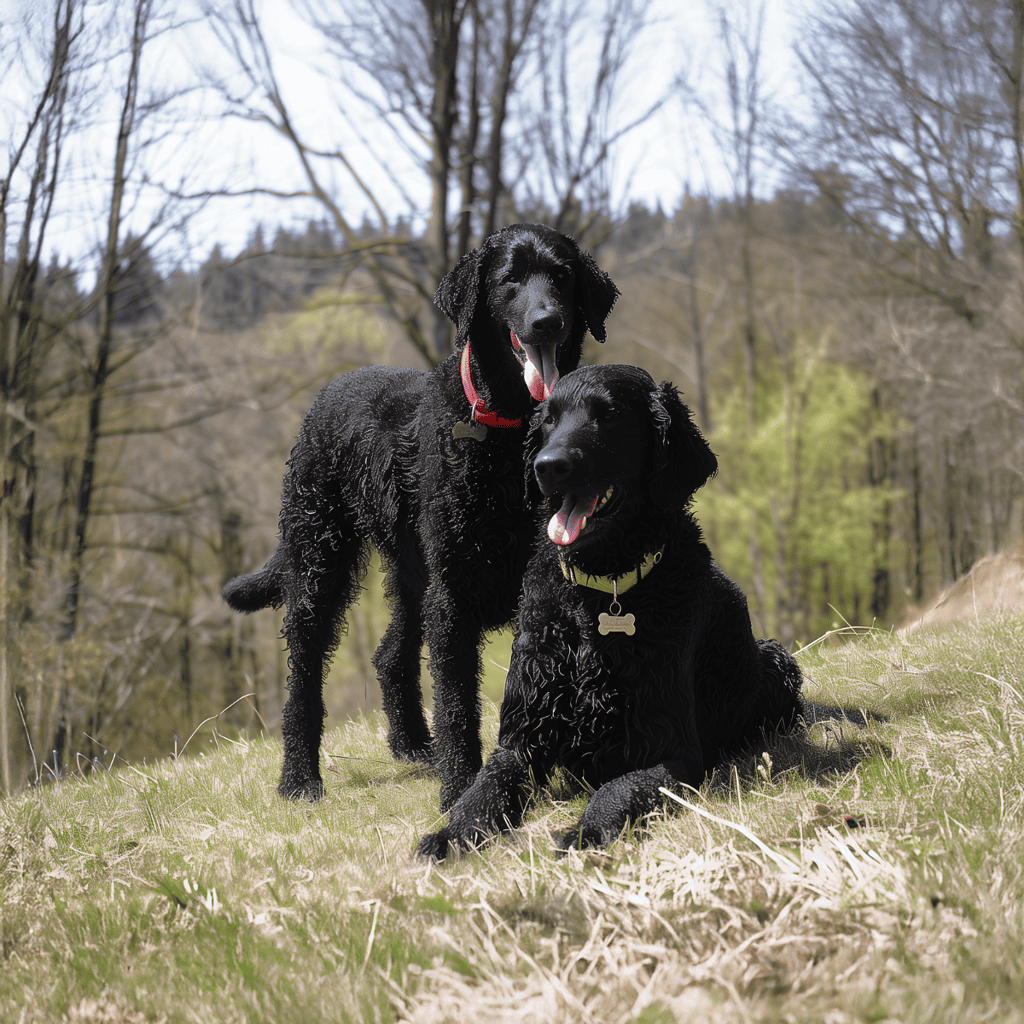
Male Curly-Coated Retrievers are 25 to 27 inches tall, while females are 23 to 25 inches. Females shed more than males, especially during peak shedding season. Both genders have similar temperament and care requirements, but females may need extra grooming during shedding. Males appear more robust due to their larger size.
Fact #1: Curly-coated retrievers are one of the oldest retriever breeds.
The Curly-Coated Retriever has a remarkable history, distinguishing it as one of the earliest retriever breeds. Originating in England, this breed was highly esteemed by gamekeepers on large estates. These dogs have a distinctive appearance, making them easily identifiable.
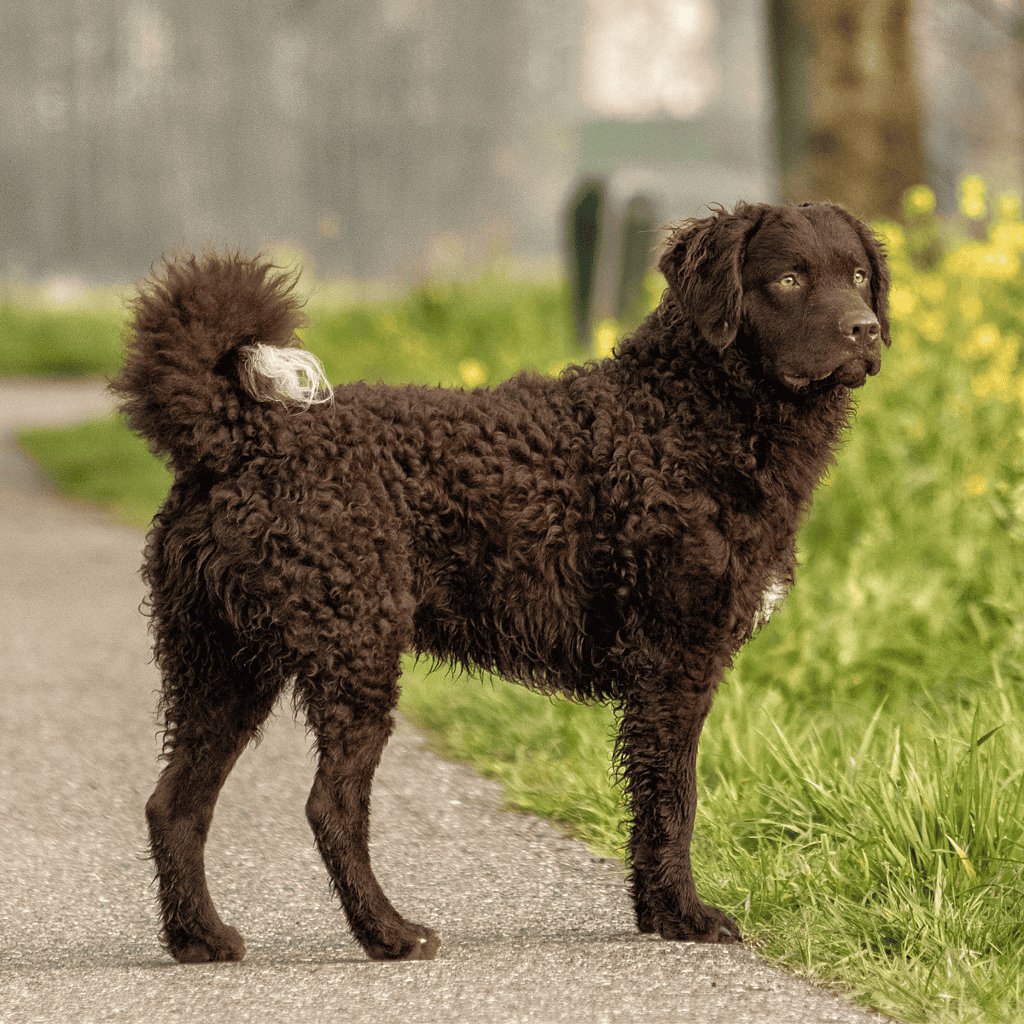
Historical references to Curly-Coated Retrievers can be traced back in British artwork 300 years ago, with written accounts of the breed dating back to 1803, highlighting their enduring presence and utility. Curly-coated retrievers were likely the first dogs used for serious retrieving work in England, an essential role that cemented their place in history. Today, they continue to be celebrated for their heritage and unique traits.
Fact #2: Curly-Coated Retrievers have straight hair on their face.
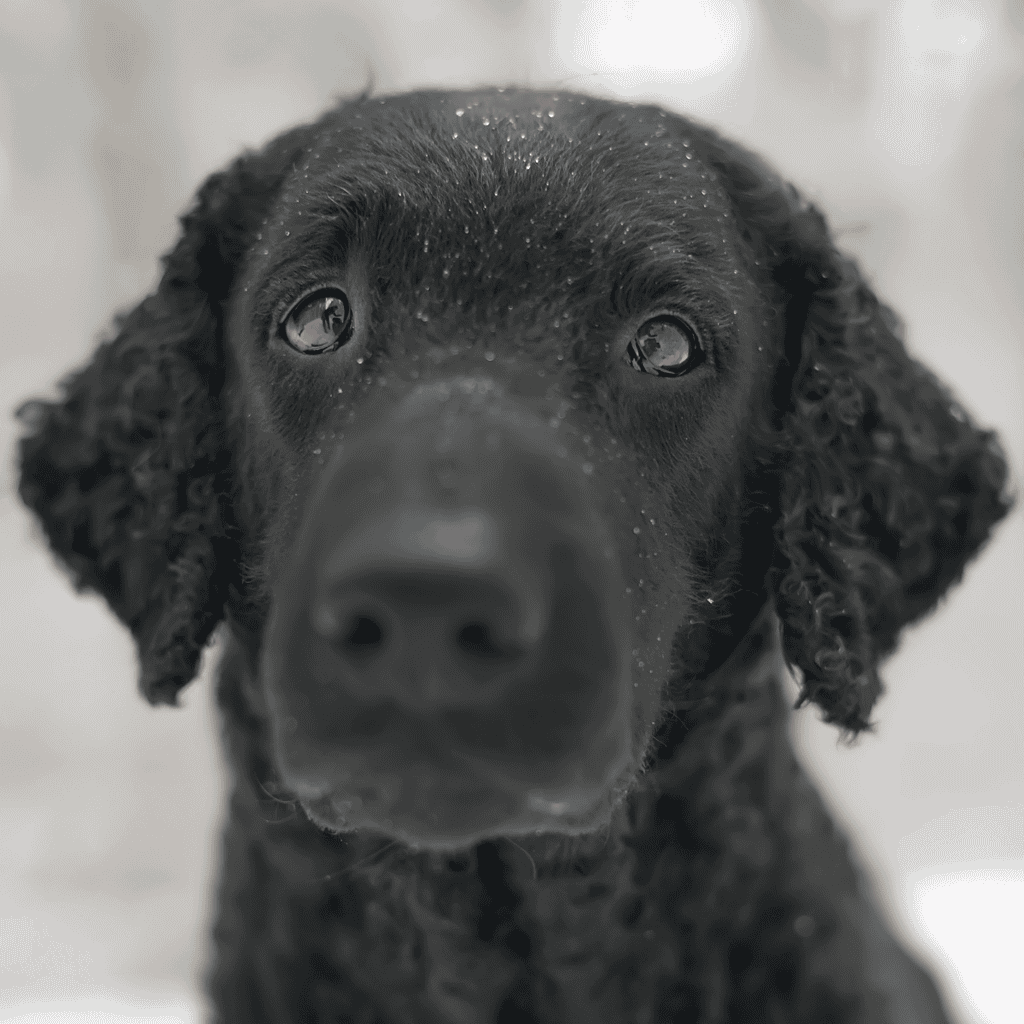
Curly-coated retrievers are known for their distinctive curly coat, which is dense and crisp. Interestingly, their faces exhibit an exception to these curls; the hair on their face and the front of their legs are straight. This straight hair contrasts with the rest of their body, where tight curls dominate. The breed standard specifies that the coat should be black or liver.
Fact #3: Their personalities are different from other retrievers.
Curly-coated retrievers stand out with their unique coat and personalities. Unlike their counterparts, they don’t quickly warm up to strangers, showing a reserved demeanor. Their profound loyalty and protectiveness towards family members reflect a deep bond.
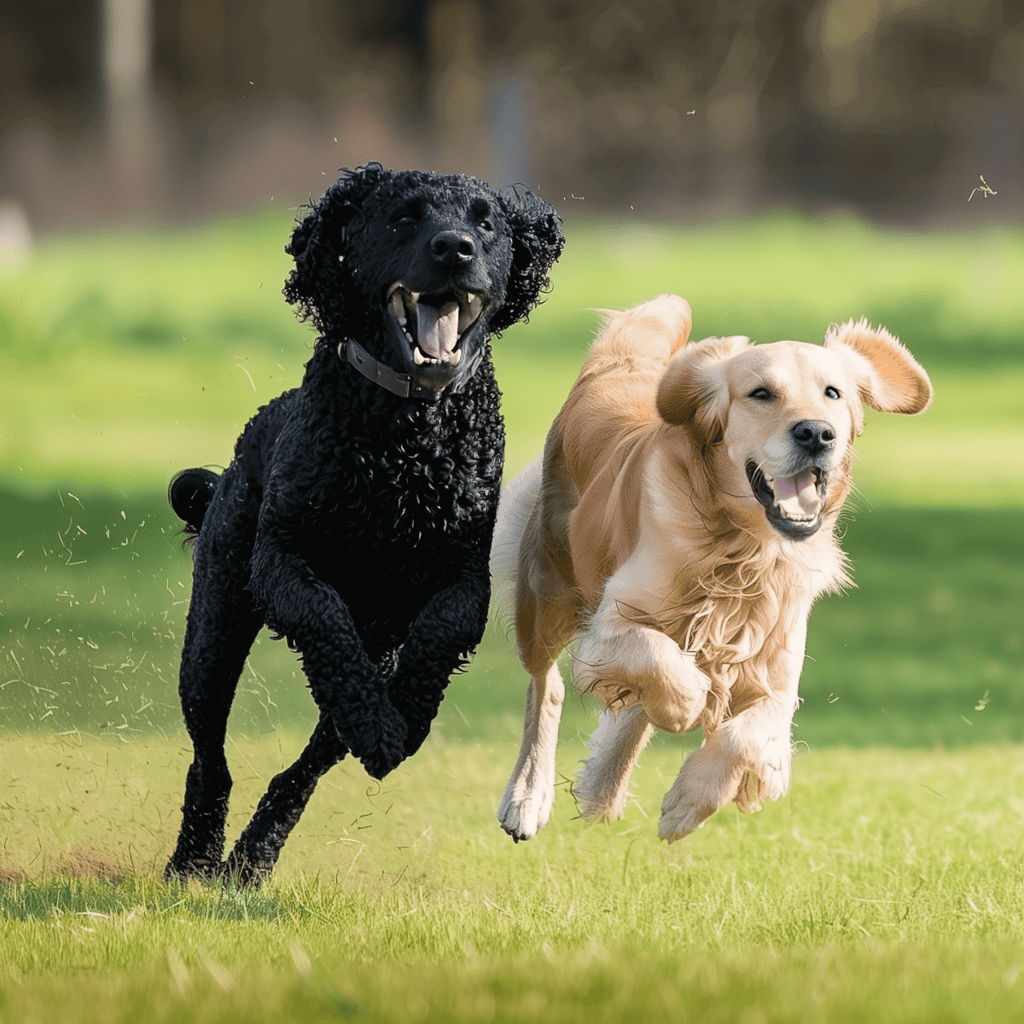
Despite their independence, which marks them as less needy for constant attention, they’re cautious and discerning around new people. This makes them ideal for families seeking a loyal yet self-sufficient companion.
Frequently Asked Questions
What is the average weight range for a Curly-Coated Retriever?
Curly-coated retrievers typically weigh between 60 and 95 pounds. Males usually fall on the higher end of this range, while females are generally lighter.
What personality traits are typically seen in Curly-Coated Retrievers?
This breed is often described as confident, intelligent, and good-natured. They tend to be very active and make excellent companions for outdoor activities.
How long do Curly-Coated Retrievers generally live?
The average lifespan of a Curly-Coated Retriever is around 10 to 12 years. With proper care and regular veterinary check-ups, some can live even longer.
What are the standard size dimensions of a Curly-Coated Retriever?
Males typically stand between 25 and 27 inches tall at the shoulder, while females are usually slightly shorter, ranging from 23 to 25 inches in height.
What variety of colors do Curly-Coated Retrievers come in?
Curly-coated retrievers are commonly found in two colors: black and liver. These colors are solid and do not include any markings or patterns.
How often do Curly-Coated Retrievers require grooming?
Their unique curly coat requires regular maintenance. You should brush them weekly to prevent matting and to check for burrs or debris that may get caught in their fur.

Didn’t find what you need? Use the search!
Search our database of over hundreds of posts with up-to-date information from our experts and veterinarians.

